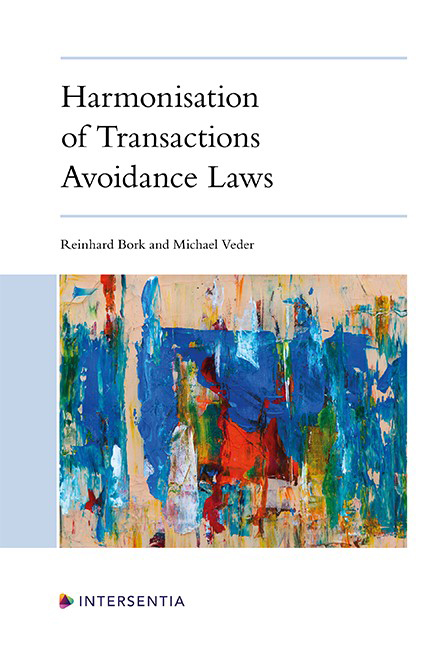Cyprus
Published online by Cambridge University Press: 26 May 2022
Summary
PART 1. DETAILS OF YOUR NATIONAL TRANSACTIONS AVOIDANCE LAW I. SYSTEM
Question 1. Is your transactions avoidance law (for terminology cf. Introduction at C.) part of insolvency law or is it in parts or as a whole incorporated in other fields of law (e.g. general civil law, commercial law, company law)?
Transactions avoidance law relating to the insolvency of natural persons is incorporated in the Bankruptcy Law, Cap. 5 of the Laws of Cyprus (ΠϵρίΠτώχϵυσης Νόμος, Κϵϕ. 5 (“BLaw”)), which is the main insolvency legislation.
The insolvency law of legal entities, however, is incorporated as a whole on the specialised legislation of each type of legal entity. Consequently, transactions avoidance law on legal entities is incorporated in this specialised legislation.
Namely, the Companies Law, Cap. 113 of the Laws of Cyprus (ΠϵρίΕταιρϵιών Νόμος, Κϵϕ. 113 (“CoLaw”)), Part V provides for the liquidation of companies and the avoidance of transactions that preceded the company’s liquidation.
Part IV of the same legislation governs Examinerships; a restructuring framework applicable to companies that are insolvent, but their business in part or as a whole may still be viable. This part of the Companies Law also includes some provisions on transactions avoidance.
Further, the Fraudulent Transfers (Cancellation) Law, Cap. 62 (Πϵρί Δόƛιων Μϵταβιβάσϵων (Ακύρωση) Νόμος, Κϵϕ. 62) provides for the cancellation of fraudulent transactions of any person that interferes with, precludes or delays the repayment of debt to any of his or her creditor(s). Even though this is a civil law legislation, it may be applied in insolvency proceedings of both natural and legal persons alike.
Question 2. Are the rules on transactions avoidance law in your jurisdiction the same for entrepreneurs/legal entities and consumers/natural persons? If not, please explain the differences and take it into account when completing this questionnaire.
Insolvency law in Cyprus distinguishes between a legal entity and a natural person, yet it does not differentiate between natural persons acting as a consumer and entrepreneurs. This means that an entrepreneur that was operating his or her business in a personal capacity, and not through a company, will be treated in the same manner in bankruptcy as a consumer, irrespective of whether the debts were incurred in their personal capacity or in the course of that person’s business.
- Type
- Chapter
- Information
- Harmonisation of Transactions Avoidance Laws , pp. 645 - 678Publisher: IntersentiaPrint publication year: 2022



